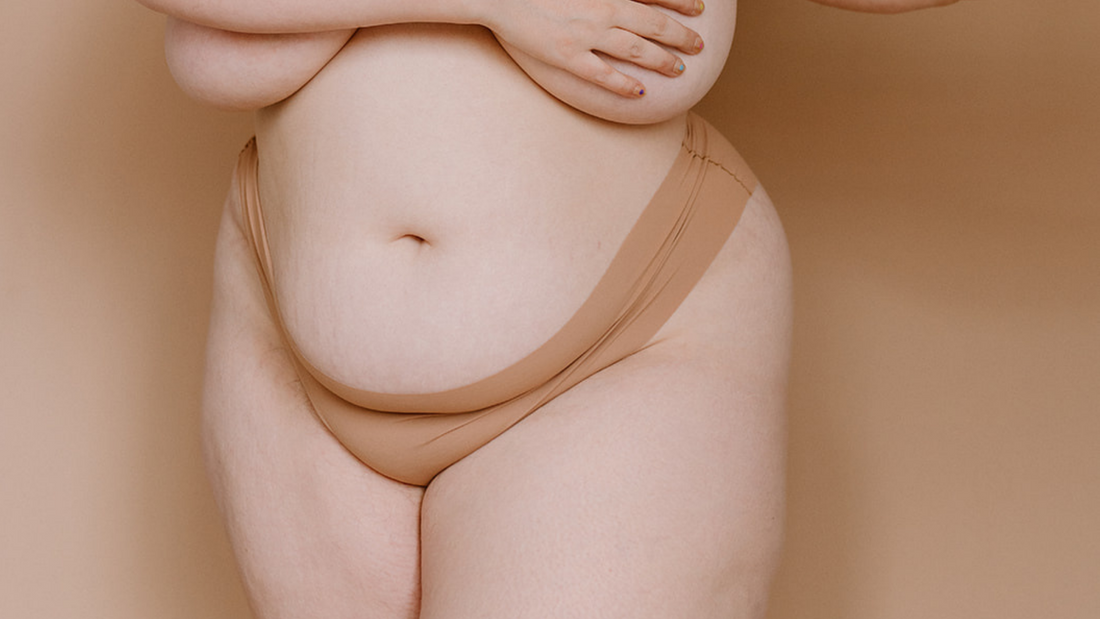
Debunking 5 Vulvovaginal Health Myths
Share
The vagina has been understudied, underreported, and misunderstood since the field of medicine deemed it important to separate broken hearts from body parts and put a name to an anomaly in the 1680s. Vagina. Genitalia. Your bits, beaver, pussy cat. A cherry to be popped; a slit to be snatched. From your two lips to God’s ears, the subject of mythology and misinformation, society has a tendency to be vague about vaginas, to lower their voices, and raise their eyebrows. To confine its legacy with cutesy nicknames and obscure allusions. But discomfort breeds disaster, and by burying that burden deep under the sand and attempting to dig around it, we’ve created a culture that bars people with vaginas from arming themselves with information about their bodies, partners from properly understanding vaginal pleasure centers, and doctors from devising long-term reproductive healthcare solutions.
We are all guilty of perpetuating the imperfect by judging ourselves and even others in effort to evade the obvious or awkward. We are all unique, things change and sometimes vaginal health can be confusing. But that’s it. We are cool, complicated and complete creatures, no less worthy or magnificent than a penis clad counterpart.
Today we aim to make mystery history and help you unlearn the biases and misinformation that has been the norm for far too long.
MYTH #1 Vaginal wetness is a sign of arousal. If you’re not wet, you’re not turned on.
Don’t we all wish that sexual arousal was this simple? Well, yes, obviously, but it’s not the case. What turns us on, how it turns us on, how it feels, and the physiological response manifests in many different ways. Nothing is not one size fits all, and that’s okay! Lube was invented for a reason (and has been used for literally thousands of years). Focus on how you feel — not how wet your vagina and vulva are. There are a lot of mental and emotional factors that may not follow your physical response to getting in the mood.
MYTH #2 Having hard, rough, or (a lot of ) pentretrative sex will make your vagina loose.
Your vagina does change in size and color when you’re aroused, but we assure you it does not stay that way! In fact, your vagina has been evolutionarily designed to stretch to accommodate penetration. As blood rushes to your pubic area during arousal, which may darken the appearance of your vulva, muscular tension, or vaginal tenting, draws the uterus upward, creating more space in the vagina, and can nearly double in size from .5 to 2 inches.
Once you begin peri/menopause, your vaginal tissue can become thinner, drier, and less elastic, but these changes have nothing to do with how often you had penetrative sex, or how many people you slept with. During perimenopause and after, your body produces less estrogen, which can reduce blood flow to the vagina.
MYTH #3 Vulvovaginal itching & discomfort is “dirty" or "embarrassing.”
Simply put, your body is telling you something. Itching is common be it from bacterial vaginosis (common), yeast infection (common), an STI, hormonal changes, irritation from sex, clothing, products or exercise (all very common), we have to unlearn our shame and stigma and stop trying pretend there is a societal normal. Focus on what YOUR body is telling you, what feels, looks, smells and discharge may be “normal for you”
READ MORE Cycles of Change: Puberty to Menopause
Vaginal discharge is gross or unhealthy. Wrong! So, so, so very wrong. Vaginal discharge is normal and necessary to help maintain a healthy vaginal environment. This is where the concept that your vagina is self cleaning comes from. Basically, discharge is the fluid secreted from tiny glands in the vagina and cervix that helps remove old cells and debris to keep your vaginal pH in balance. Discharge can come in a myriad of colors, scents, viscosities, and amounts, many of which are normal and, yes, even good for you! Of course, these attributes can also indicate a vulvovaginal health issue like BV or a yeast infection, so be mindful of any sudden or long-term changes that may be irregular for you.
READ MORE Decode Your Vaginal Discharge
MYTH #4 You “lose” your virginity
Woof. Virginity is a construct. You did not “lose” anything — nothing was taken from you. Your body is your own. If there is a time when you begin to engage in sexual activity be it penetration with a penis, toy, fingering, or oral. “Sex” is what you make it. Congratulations on your sexual debut if and when you are ready to make it, however you make it. You decide.
Not sure what you need? Take our quick quiz for personalized product recommendations. Take the quiz.
Related Reading
What the Color of Your Period Blood Can Tell You About Your Health
YSK: How to Prepare for Your OB/GYN Appointment
Making Sense of Your Vaginal Scents: 10 Common Vaginal Smells & What Mean
Momotaro Apotheca and its materials are not intended to treat, diagnose, cure or prevent any disease. All material on Momotaro Apotheca is provided for educational purposes only. Always seek the advice of your physician or other qualified healthcare provider for any questions you have regarding a medical condition.

